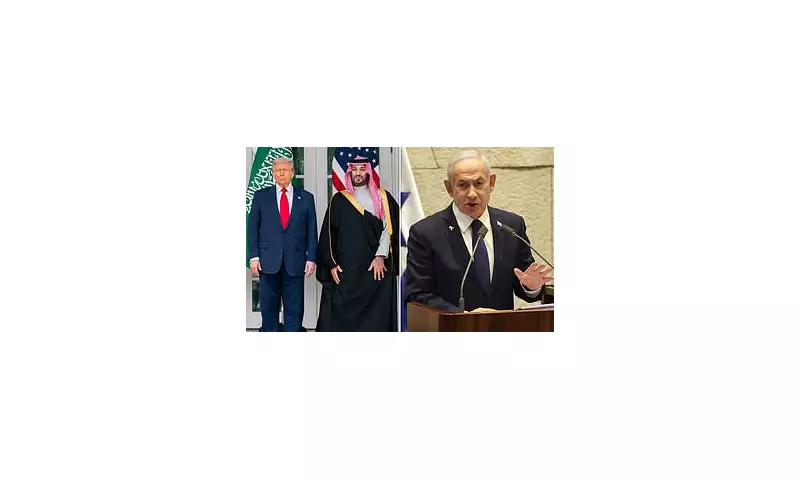
When Saudi Arabia's Crown Prince Mohammed bin Salman visited the White House last week, the public displays of friendship masked a tense private confrontation between the two leaders over normalising relations with Israel.
A Warm Welcome Turns Cold Behind Closed Doors
The meeting on November 18 began with all the pomp and ceremony reserved for America's closest allies. As President Trump greeted the Saudi leader on the west lawn, American F-35 and F-15 fighter jets performed a spectacular flyover - a rare honour that underscored the importance Washington places on its relationship with Riyadh.
In the Oval Office, with cameras rolling, both leaders exchanged warm words and praised the strength of US-Saudi relations following the recent Gaza conflict. Yet this atmosphere of cordiality quickly evaporated once journalists were escorted from the room and the real negotiations began.
The Abraham Accords Standoff
Behind closed doors, President Trump made a direct appeal to the Saudi leader to formally join the Abraham Accords - the normalization agreement between Israel and several Arab nations that represents one of Trump's signature foreign policy achievements.
According to sources who spoke to Axios, the discussion became increasingly tense as Mohammed bin Salman pushed back against the American president's demands. The Saudi crown prince explained that public opinion in his kingdom had turned sharply against Israel following the deadly Gaza war, making any immediate normalization politically impossible.
One source described the conversation as filled with "disappointment and irritation," adding: "The president really wants them to join the Abraham Accord. He tried very hard to talk him. It was an honest discussion. But MBS is a strong man. He stood his ground."
The Palestinian State Precondition
MBS presented Trump with a clear pathway toward future normalization, but attached significant conditions that may prove difficult to meet. The Saudi leader insisted that Israel would need to agree to "an irreversible, credible and time-bound path" for establishing a Palestinian state before Riyadh would consider joining the Abraham Accords.
This position directly conflicts with the stance of Israeli Prime Minister Benjamin Netanyahu's government, which has ruled out any official path toward Palestinian statehood in Gaza.
Despite the firm stance, US officials noted that the Saudi leader didn't completely close the door on future normalization. "MBS never said no to normalization. The door is open for doing it later. But the two-state solution is an issue," one American official commented.
The White House confirmed that expanding the Abraham Accords remains a central focus of the administration's Middle East policy. The agreement, originally negotiated by Trump's son-in-law Jared Kushner in 2020, has been hailed as a breakthrough in Arab-Israeli relations after decades of hostility.
In a curious postscript to the tense meeting, Trump later announced during their joint press remarks that America would sell its advanced F-35 fighter jets to Saudi Arabia, despite objections from Israel. However, Secretary of State Marco Rubio subsequently assured Netanyahu that the deal wouldn't proceed in its current form, promising that the Saudis would receive less advanced aircraft instead.






